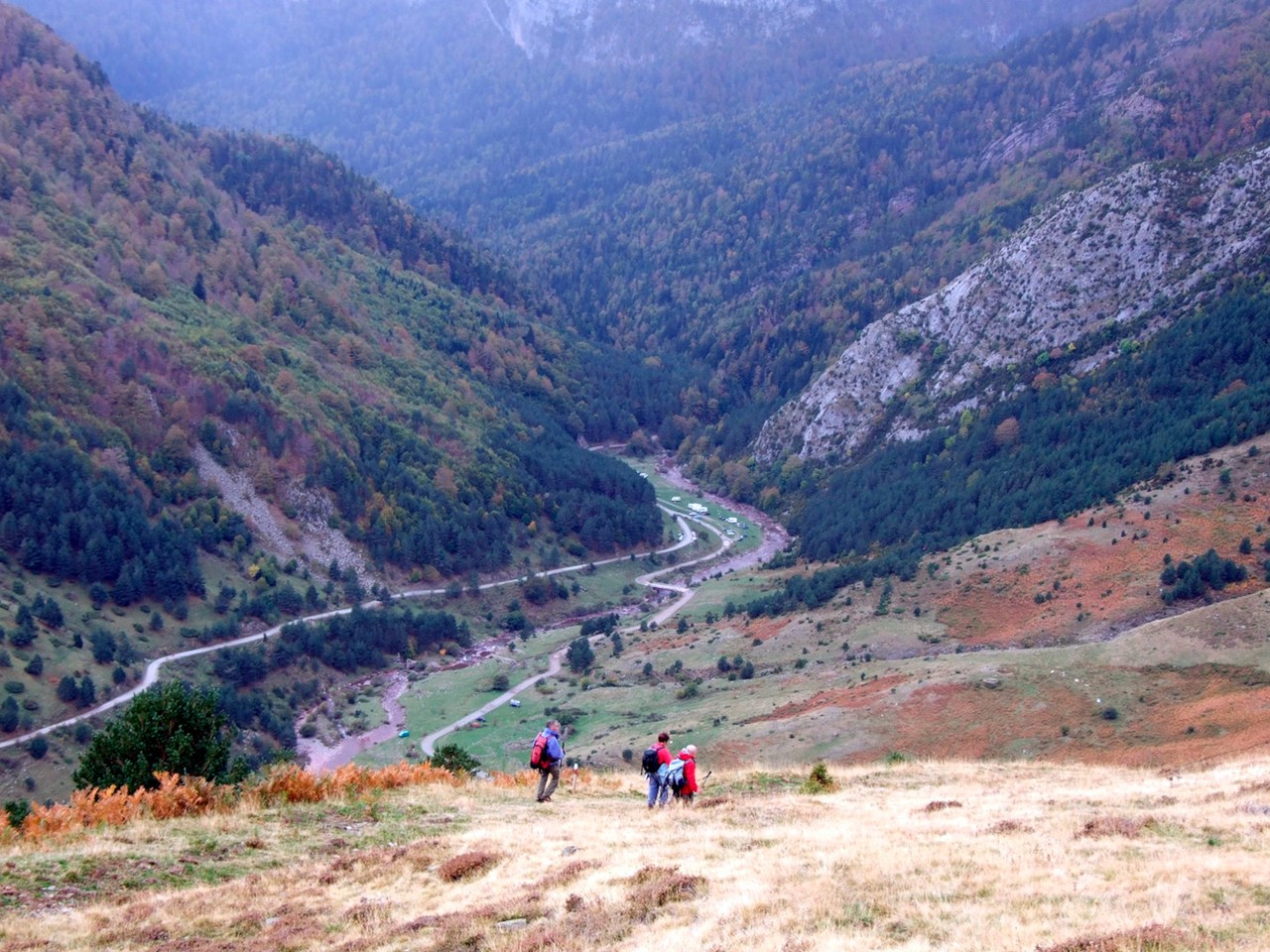After the fear and difficulties of the climb, the feeling of freedom that came with finally reaching Spain was quickly shattered by the reality of a perilous descent down a grassy slope, sometimes covered with snow. Michel Poniatowski (see La Cuarde) described his journey on December 1, 1943:
The descent, which looked easy, wasn't. The snow covered the scree and rocks evenly. We slipped, skidded, and twisted our ankles. Our walk was punctuated by cries of surprise when the snow suddenly gave way and our feet hit a rock painfully. Soroko (born in 1897) moved forward groaning, guided by his brother and supported by his sister-in-law or one of us... An hour later, we reached a mountain pasture where the snow was smooth and no longer hid any treacherous spots. The slope was steep enough that we could slide down effortlessly, sitting on our heels or the backs of our pants. Georges Soroko, however, was showing increasingly worrying signs of exhaustion. We sat him on a coat that served as a sled and moved forward, pulling and holding him at the same time. Dazzled by the sun on the snow, he could no longer see. He murmured softly in a sung lament to himself: “I am blind, I am blind.” “ A little later, he said in the same way: ”My heart, my heart“; and finally: ”Stop, stop, I'm going to die.“ And he died, just like that, clutching his brother's hand, with only one word of farewell for him: ”Go on."
Michel Poniatowski, Memoirs, Éditions du Rocher, 1997.
The customs officers at Casa de la Mina had become accustomed to seeing these illegal immigrants arrive. After searching them, often confiscating pesetas and cheese, they would offer them thick, strong wine to drink, or even soup when there weren't too many of them. Too exhausted to make their way to the first village, the fugitives spent the day at La Mina before being taken to the prison in Hecho.
